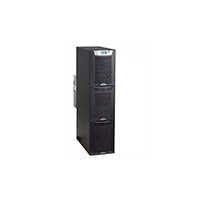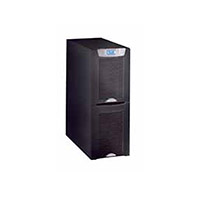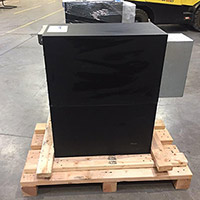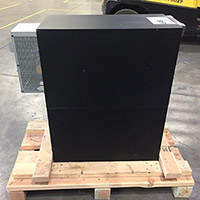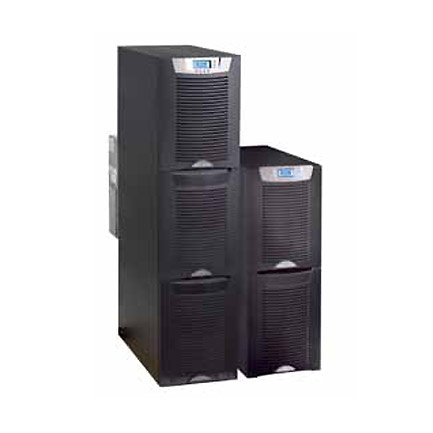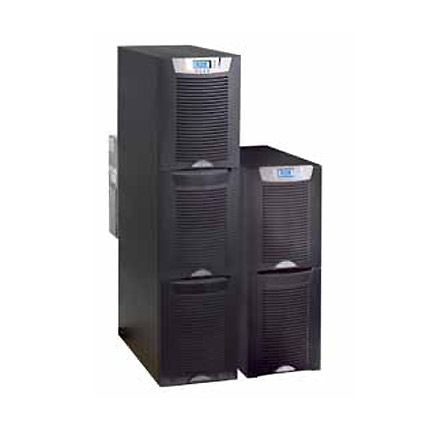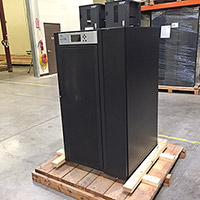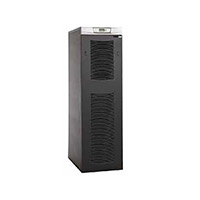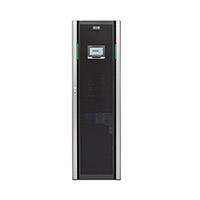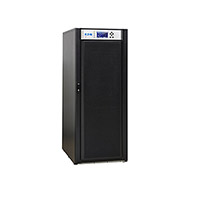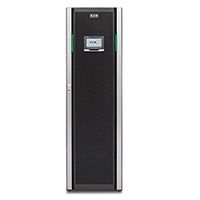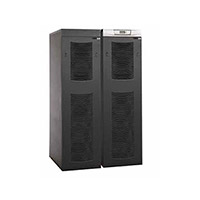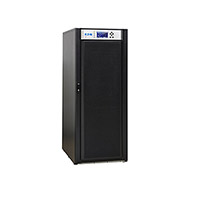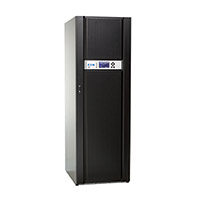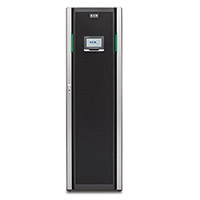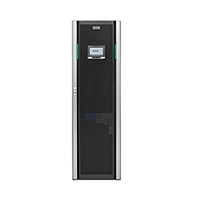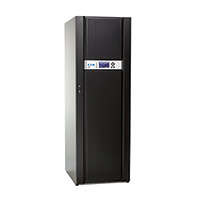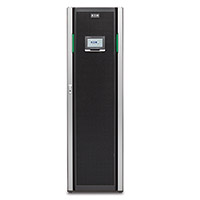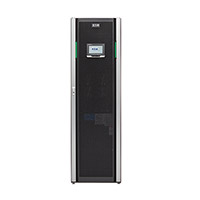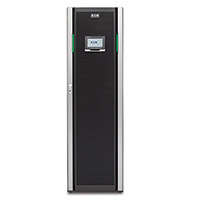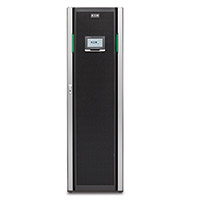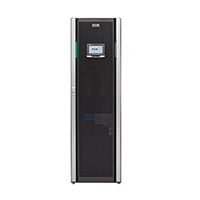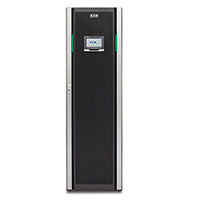Global Power Supply provides Uninterruptible Power Supply (UPS) systems from top-of-the-line brands such as Toshiba, Eaton, Riello, Xtreme Power Conversion, 360 Power Quality, and more.
Our stock of industrial UPS systems includes products ranging from 5 kVA to 1,000 kVA, capable of providing backup power for data centers and critical facility businesses in the USA. We sell and rent UPS systems in indoor, outdoor, standalone, or trailer-mounted configurations.
Simply select a UPS and request a free quote, and we’ll provide prices and availability for a complete solution for your critical application.
The Purpose of an Uninterruptible Power Supply (UPS)
An uninterruptible power supply, or UPS, is a continuous power system made to ensure your facility’s power infrastructure has an automated backup power source in the event of an outage or other power disturbances.
Other systems, such as automatic transfer switches and standby natural gas and diesel generators, provide similar coverage. The big difference of UPS units is that they provide battery backup power almost instantly without disrupting the load.
For the most part, UPSs allow facilities to operate on a battery backup system, providing a short period of time while standby generators or alternative power sources come online. This helps prevent any damage to sensitive equipment and reduces downtime and interruption for vital machinery and services.
It also prevents data loss for specific institutions and facilities, such as data centers and enterprise offices. Additionally, UPSs also provide a certain amount of power conditioning in situations such as:
- Voltage spikes and sags
- Consistent overvoltage or undervoltage
- Noise (or unstable electrical signals)
- Harmonic distortion (or irregularities in the power supply)
Types of UPS Systems
While all UPSs provide protection against sudden power outages and electrical disturbances, there are a few different types. Some are meant to provide backup power for smaller devices, while others are built to provide a sustainable power supply for entire data centers, manufacturing facilities, and more.
To help you find your desired backup power system, here are some of the different types of UPS systems to consider:
Standby
Standby UPS, also known as offline UPS, is designed to provide basic backup power and protection to electronic devices. In normal operation, a Standby UPS supplies power directly to the equipment and charges its internal batteries. If the UPS detects an input power failure, it quickly switches to its internal battery, and an inverter converts DC power into AC power to supply connected devices.
Advantages / Limitations
Generally, Standby UPSs are less expensive than other types of UPS. They are very easy to install and operate and are designed to be compact. Most of them include surge protection.
Standby UPS systems may not handle all power disturbances as well as other types. They provide a minimum backup time to allow for proper shutdown. Most models have a switching delay to battery, which is fast enough to protect most equipment.
Typical Applications
Standby UPS systems are usually found in homes or small offices to protect computers, network equipment and peripherals. Most standby UPS systems are rated for 1,500VA or lower.
Line-Interactive
Line-interactive UPS provides enhanced power protection and voltage regulations compared to Standby UPS. It is designed to handle a wider variety of power disturbances, making it suitable for sensitive and critical applications. It also relies on its internal batteries to power the load in case of an outage or input power fluctuations.
Advantages / Limitations
Line-Interactive UPS are better at reacting to power disturbances than Standby UPS and can maintain constant output voltage without battery usage. They offer a good tradeoff between cost and performance.
They still provide a limited amount of backup time and may not be suitable for most sensitive equipment.
Typical Applications
You can find line-interactive UPS systems rated for up to 5,000VA, making them suitable for larger offices, businesses with on-site servers, networking equipment and point-of-sales (POS) systems.
Double Conversion On-Line
Double Conversion UPS systems, also known as Online UPS, provide the highest level of protection to critical loads by continuously converting incoming power from AC to DC and then back to DC, while charging its batteries. Online UPS ensure a consistent and clean power output to most sensitive loads.
Advantages / Limitations
Double Conversion UPS provides output power without any interruption and zero transfer time to batteries in case of a power failure. They are ideal for environments where power quality and reliability are vital. Online UPS can be configured with a longer backup time than any other UPS type.
Generally, this type of UPS is more expensive due to its advanced features, and may provide lower efficiency than the UPS previously mentioned. They also tend to have a larger footprint.
Typical Applications
Most common applications are critical systems such as data centers, telecom, medical equipment and industrial operations. Online UPS are rated from 5,000VA up to 1.5MW.
Choosing the Right UPS for Your Needs
Selecting the appropriate UPS system for your facility can be tricky. To achieve an effective level of power resilience, it is best to consider a UPS backup solution that fits your power, runtime, scalability, and cost of ownership requirements.
Fortunately, there are plenty of options available at GPS to cover all your needs while still providing considerable value. Below, we at Global Power Supply share some essential elements to consider so you can choose the right UPS backup power system for your needs:
Power Requirements
It’s essential to know your power needs before you can choose a UPS backup system for your operation. This is usually measured in watts (W) or voltage-ampere (VA). Ideally, you should use a power meter to measure the voltage and amperage of critical equipment. Alternatively, you can consult the owner’s manuals for voltage and volt-amp (VA) ratings or ask for the help of our experts.
When assessing the power load for a UPS system, add the power (W or VA) ratings of the equipment you want to support. Then, add at least a 10% buffer to ensure your UPS backup system can meet your expectations. It is also important to understand your future needs to help you get one step closer to finding the best possible solution for your critical facility.
Backup Run Time
How long do you need your UPS battery backup to power equipment?
If you have an on-site generator, you might only need the UPS backup system to operate for a few minutes while your generator comes online. If the UPS is relying exclusively on its battery backup system, then you will likely want to maximize battery runtime.
Most smaller UPS (up to 60kVA) are configured with internal batteries, while larger UPS require external batteries for backup. The amount of runtime needed is highly dependent on the load applied to the UPS.
As UPS battery technology evolves, different types of batteries are becoming more prevalent outside of traditional lead-acid batteries. You may want to consider moving to lithium-ion batteries to reduce your overall footprint and weight while increasing the life of the battery by 2-3x compared to lead-acid batteries.
To perform a UPS runtime calculation, multiply the UPS system’s battery capacity (in Ah) by the battery rating (in V) by the battery efficiency (in %). Then, divide that amount by your equipment’s power requirements (in W). You can also use the Global Power Solution calculator.
For most small businesses and office workspaces, you may only need a few minutes of backup power to allow employees to save data and safely shut down their systems.
Data centers, hospitals, and large organizations that experience huge risks due to power loss may require a larger UPS system that is part of a comprehensive backup power supply.
Scalability & Redundancy
As organizations increasingly adopt digitalization, electricity usage will likely increase. That makes it important to consider UPS system scalability when choosing solutions for your facility.
Modular UPS backups make it possible for businesses to scale as their power needs evolve. If you prefer a standalone UPS backup, choose one that will meet your estimated power needs 5-10 years from now.
The addition of two or more UPS in parallel will provide additional redundancy in case one of the UPS fails or requires maintenance. A configuration with an external maintenance bypass will also allow for uninterrupted power to the load when the UPS requires service or replacement.
Total Cost of Ownership
The total cost of ownership or a UPS will definitely exceed the amount of money you spend buying the equipment. Some experts estimate that the purchase cost accounts for only 25% to 40% of the total cost of ownership for the life of the product.
Outside of the upfront costs, these are the main TCO considerations:
- Installation, start-up, and commissioning services
- Energy efficiency (more efficient systems have lower long-term costs)
- Battery replacement cycle
- Integrating with existing systems
- Performance monitoring (onsite or remote)
- Uninterruptible power supply maintenance and repairs
Remote Monitoring & Management
An excellent industrial UPS system includes remote monitoring and power management. These features allow facilities to take proactive measures and keep their emergency power supplies and UPS in top shape. It also helps you stay responsive and prompt in the case of an outage or other types of emergencies.
UPS Warranty and Support Services
Warranties can vary significantly depending on the product, manufacturer, and vendor you choose.
Most UPS manufacturers will offer 1-to-3 year warranties. You can potentially get an extended warranty from a vendor, which will cover your UPS for a longer period.
It’s important to read the warranty carefully to understand what is included. Some will replace equipment that malfunctions within a certain amount of time, while others will repair malfunctioning items.
The warranty should also outline your responsibilities as a user. If you violate the terms, you could invalidate the agreement.
Secure Your Backup Power, Batteries & More At Global Power Supply
In every industry, it is vital to have a reliable power infrastructure. This includes intuitive components like uninterruptible power supply systems, automatic transfer switches, and more.
For those searching for a single, full-service provider of high-quality power supply systems, look no further than Global Power Supply. Not only do we offer used and new industrial UPS systems, generators, energy storage, and more, but we also provide turnkey engineering services and solutions.
There are a lot of factors to consider before investing in UPS backup solutions. Contact Global Power Solutions today to speak with an expert who can help you select a system that matches your business’s needs.
Frequently Asked Questions
What is an industrial UPS system?
An industrial UPS (Uninterruptible Power Supply) system is a backup power device designed to protect critical equipment in industrial settings from power outages, voltage fluctuations, and surges. It ensures continuous power for machinery and electronics during interruptions.
How does an industrial UPS work?
An industrial UPS system works by storing electrical energy in batteries and providing power to equipment when there is a disruption in the main power supply. It instantly switches to backup power, preventing downtime and protecting sensitive systems from damage.
Why are industrial UPS systems important?
Industrial UPS systems are important because they safeguard essential machinery, control systems, and data centers in factories and other industrial environments. They prevent costly downtime and damage caused by power outages or voltage fluctuations.
What are the different types of industrial UPS systems?
The main types of industrial UPS systems include online (double-conversion), line-interactive, and offline (standby) UPS. Each type offers varying levels of protection and efficiency based on the power needs of the industrial application.
How do I choose the right industrial UPS for my business?
To choose the right industrial UPS, evaluate your power requirements, runtime needs, and the type of equipment being protected. Consider factors like battery capacity, voltage rating, and whether you need protection against power surges, voltage drops, or complete outages.
